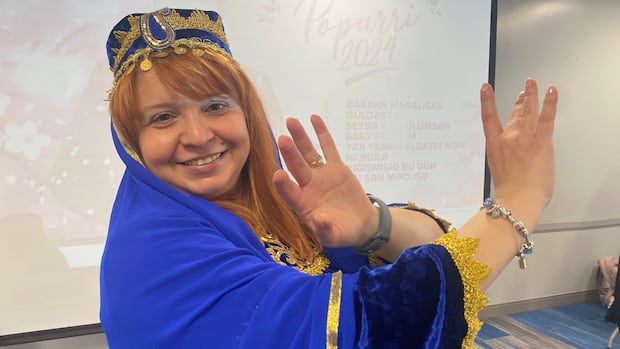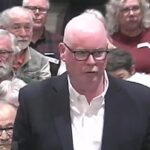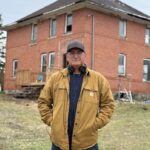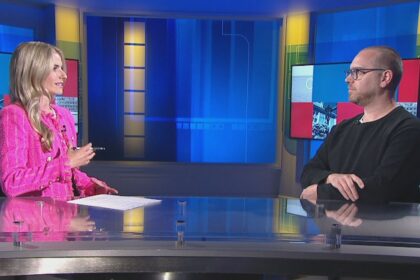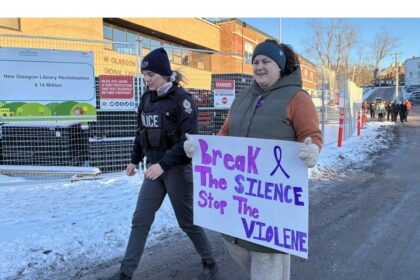Saskatchewan·First PersonAs a child, Rena Farajova dreamed of dancing professionally in her home country of Azerbaijan, until a heart condition meant she had to stop. Coming to Canada brought an unexpected and joyful return to the dances of her native country.A medical condition put an end to my dreams of dancing, but the music never left meRena Farajova · for CBC First Person · Posted: Oct 16, 2025 4:00 AM EDT | Last Updated: 3 hours agoRena Farajova had to stop dancing as a child due to a heart condition. She found joy in returning to the dancing traditions of her native Azerbaijan after moving to Canada. (Janani Whitfield/CBC)This First Person column is by Rena Farajova, who lives in Regina. For more information about CBC’s First Person stories, please see the FAQ.When I was ten years old, I stood in a grand ballroom, my heart pounding so loudly I thought everyone could hear it. The stage lights were sharp and blinding, the polished floor gleamed and the air itself seemed alive with anticipation.I had been dancing Azerbaijani national dances with the children’s ensemble “Cücələrim” (Chicks) since the age of three, and it was the greatest joy of my childhood. In these dances, the girls focus on the graceful flow of their bodies and the elegance of each gesture. Each performance felt like magic, and the thought that I could bring joy to others through dance filled me with pride.Farajova loved music and dance as a child. (Submitted by Rena Farajova)But life delivered a harsh blow to my dreams of dancing. When I was 10, doctors diagnosed me with arrhythmia and heart valve problems, which meant blood was not flowing properly through my heart. My chest would ache sharply and I couldn’t breathe normally — my heartbeat swinging from too fast to too slow. Doctors told me dancing was too risky with my condition. Their words felt like a door slamming shut. Dance had been my identity, my joy, my heartbeat — and suddenly, it was stripped away.The illness affected more than just dance. Whenever I had stressful exams or heavy workloads, the pain would return, reminding me of my limits. As a child full of dreams, being told to slow down felt unbearable. For years, I could not bring myself to move to music. Even at family gatherings, when songs played and others danced, I sat still, the silence inside me heavier than the rhythm around me.After countless treatments and painful injections, I grew stronger. My body began to heal, and slowly, my condition improved enough for me to live normally. As Farajova grew older, treatment helped make her heart stronger, and allowed her to start dancing recreationally once again. (Submitted by Rena Farajova)But the emptiness remained. Healing my body was one thing; living without dance was another. I watched my peers continue their journeys while mine had ended too soon. I joined recreational ballroom and Latin dance classes in my 20s — not to perform or compete, but simply to feel movement again. To return to professional national dance only at a recreational level would be a betrayal of what it meant to me. So instead, I started fresh in another form. In my culture, we say that when music plays, it enters your bones — you cannot resist. And even after years of silence, the rhythm was still alive inside me.Years later, when I moved to Canada with my family, I thought that part of my life was truly behind me. Read more CBC First Person pieces here.Immigration is a journey of both hope and loss. We chose Canada because it promised the best future for our children. But I believed life would become too busy, and I doubted people here would be interested in my traditions. My days filled quickly with family, work, and responsibilities. Dance, once the center of my world, slipped away once more.Still, something inside me longed to hold on to my roots. I tried to share my heritage where I could — through food, through stories, through small traditions at home. To my surprise, people here were curious and genuinely interested. Their appreciation gave me courage. In 2023, together with friends, we officially registered a non-profit: the Azerbaijani Cultural Association of Regina (AzCAR).Farajova and her friends in Regina formed a cultural group, ordering costumes from their native Azerbaijan. (Janani Whitfield/CBC)We decided we couldn’t talk about our traditions without showing them. That is when we decided to order national costumes from Azerbaijan.I will never forget the day the parcel arrived. I opened the box and carefully unfolded each piece. The embroidery shimmered under the light, intricate stitches carrying the stories of generations. The rich fabric rustled as I lifted the skirt, and its familiar weight brought back memories of dressing backstage as a child. The scent of cloth and dye was like a whisper from home. I pressed the costume to my chest and cried. It felt as if a long-lost part of my soul had been returned to me.We began teaching our children traditional dances and formed an adult group as well. Rehearsals were full of laughter, mistakes and encouragement. We weren’t professionals — but together, we felt alive.Farajova, left, and her family share their love of Azerbaijani culture and dance with others in Canada. In this photo, she is with her husband Anar, her older daughter Aliya, her son Rashid and her youngest daughter, Elza. (Janani Whitfield/CBC)The first time we performed at a festival in Canada, my heart raced just like it had in that grand ballroom so many years ago. When the music swelled and our costumes shimmered under the lights, the applause felt like an embrace — not just of me, but of the culture I was sharing.In that moment, I understood something deeply: the dream I thought I had lost forever had never truly left me. It had only been waiting for me to find the right way back.Today, I continue to dance. Each performance is more than steps and music. It is resilience. It is belonging. It is the joy of giving my children and community a piece of who we are. In this multicultural country, people are eager to discover traditions from around the world, and I am proud to stand on stage and say, “This is ours.”After so many years of silence, I found my way back. The lights, the applause, the music in my bones, even the rustle of costumes — they are with me again. And this time, I know I will never let them go. Do you have a compelling personal story that can bring understanding or help others? We want to hear from you. Here’s more info on how to pitch to us. ABOUT THE AUTHORRena Farajova moved to Regina in 2019 with her family. She is a wife and mother of three who enjoys dancing, reading, travelling, volunteering, and spending time with family and friends. She also serves as a board member of the Azerbaijani Cultural Association of Regina, a non-profit organization founded in 2023.
My heart broke when I had to quit dancing. Finding a way back healed me
